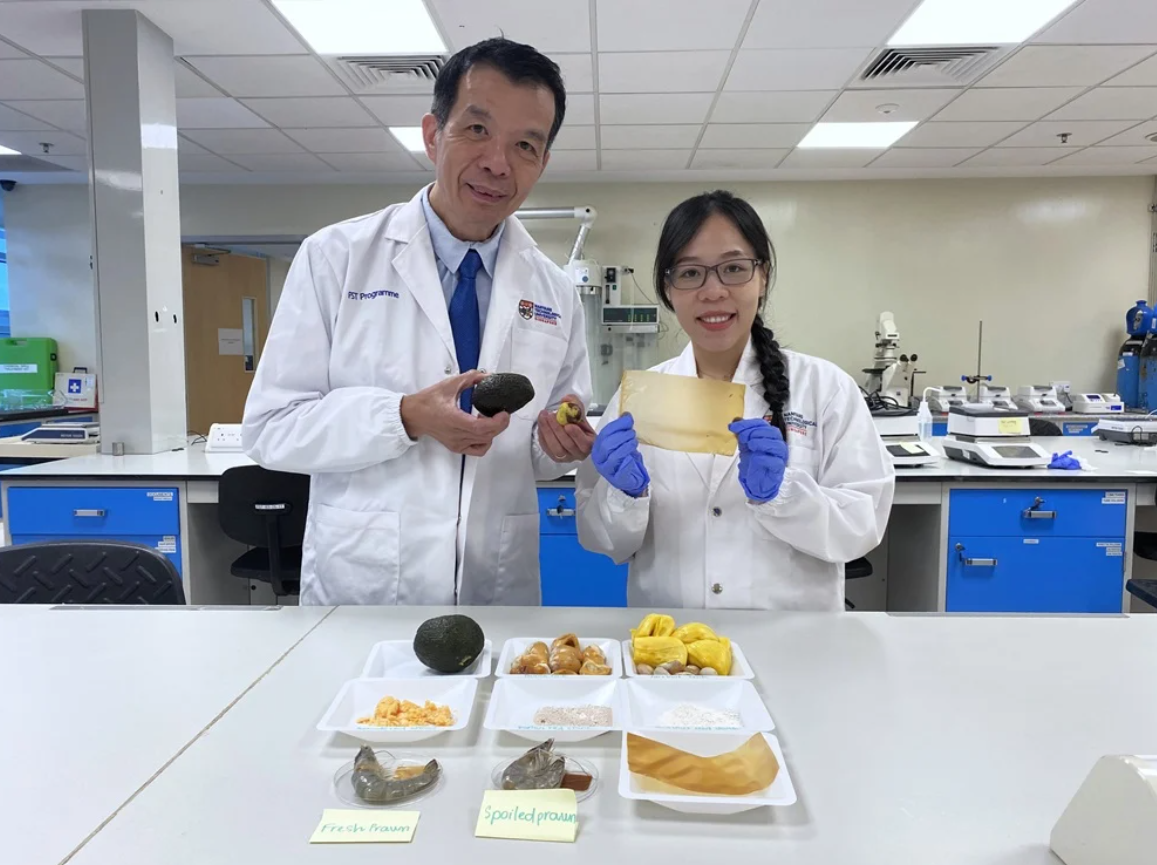SINGAPORE: A team of scientists from Nanyang Technological University (NTU) Singapore has unveiled an innovative biodegradable food wrap designed to change color when food begins to spoil. This development not only addresses food waste but also incorporates antibacterial properties to safeguard against microbial contamination.
The sustainable food wrap is crafted from discarded fruit seeds, significantly contributing to waste reduction. Key ingredients include avocado pits, which are essential to the wrap’s formulation, along with starch derived from durian and jackfruit seeds.
The research team discovered that the extract from avocado seeds contains beneficial compounds such as catechin and chlorogenic acid. These compounds are effective in preventing oxidation and inhibiting the growth of harmful bacteria, including Staphylococcus aureus, known for producing toxins linked to food poisoning.
One of the wrap’s standout features is its natural compound, Perseorangin, which is sensitive to pH changes. This allows the wrap to change color based on the acidity or alkalinity of the food it encases. Specifically, the wrap transitions from a translucent yellow to a deep brown when nitrogen compounds, produced by bacteria, accumulate as they break down amino acids in protein-rich foods like seafood and meat.
The smart wrap has demonstrated the capability to signal food spoilage up to two days before visible discoloration or foul odors appear in shrimp. This early warning system could revolutionize food freshness monitoring, helping to prevent foodborne illnesses by discouraging consumption of food that may appear fresh yet is on the verge of spoilage.
Industry experts, though not involved in the study, have praised the NTU innovation. Ms Mirte Gosker, Managing Director of The Good Food Institute Asia Pacific, highlighted the wrap’s potential to enhance food security and sustainability. “Fortifying a more secure, sustainable, and just food system, while minimizing waste, is not merely a choice in Asia—it is necessary,” she noted.
mS Gosker also emphasized the wrap’s benefits for food producers aiming to reduce waste and optimize neglected aspects of the food production cycle. She remarked, “By utilizing previously discarded jackfruit seeds, durian seeds, and avocado pits, the novel food wrap production method created by NTU’s Prof William Chen is a compelling example of how we can look to nature to achieve a bigger green impact with less.”
This innovative biodegradable food wrap represents a significant step forward in the quest for sustainable food packaging solutions and has the potential to reshape the future of food preservation and safety.

